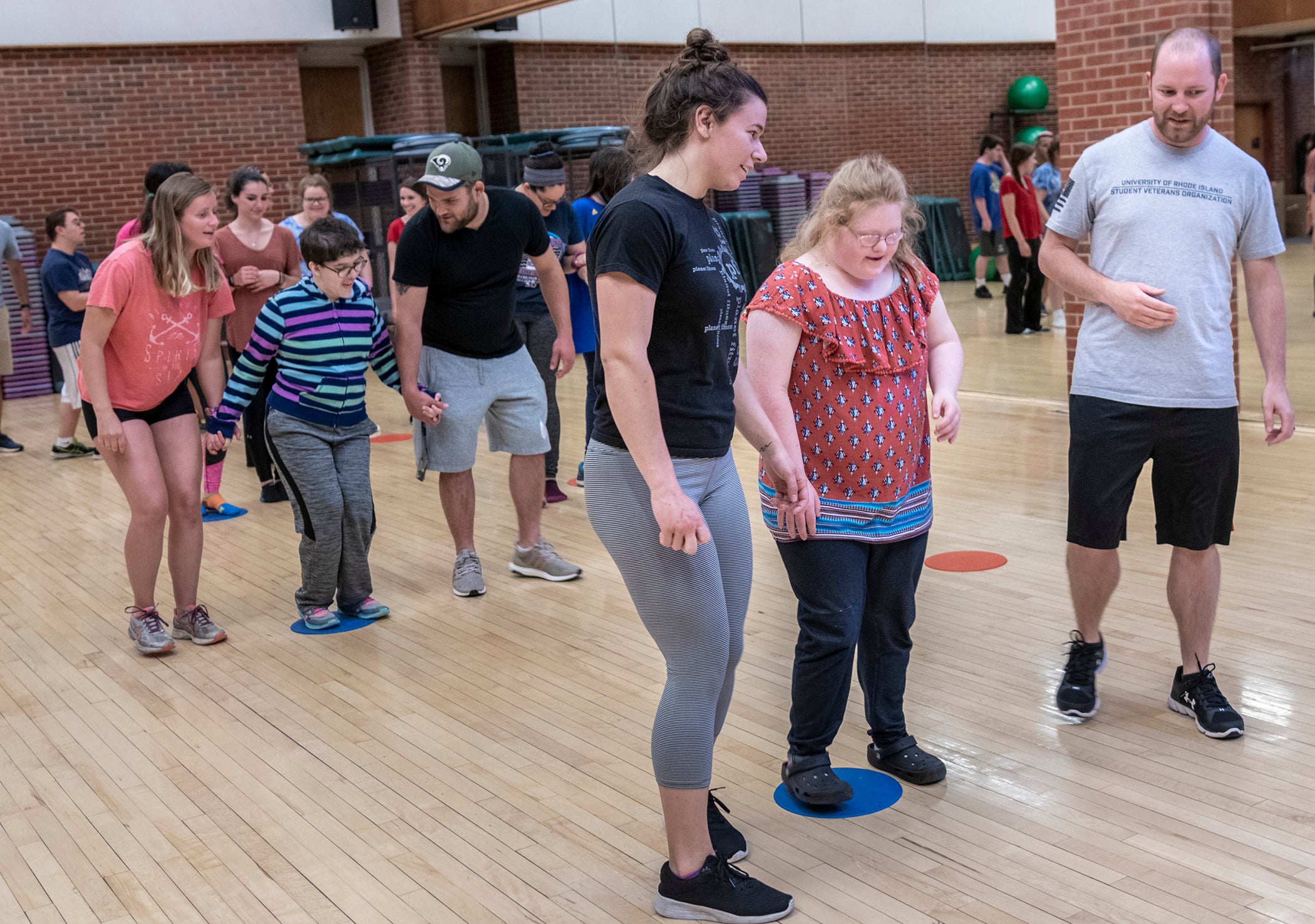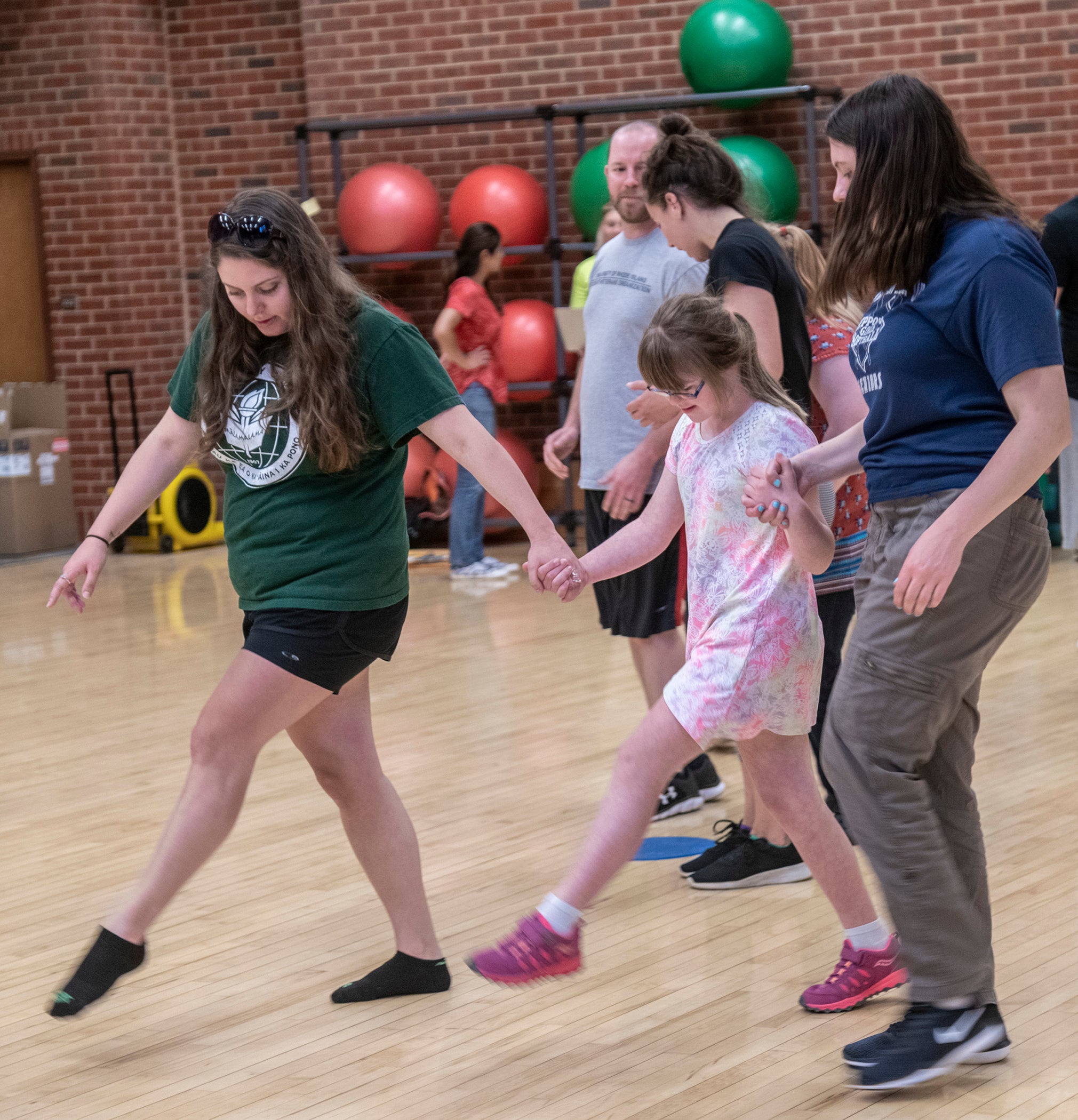KINGSTON, R.I., June 12, 2018 — Adapted exercise sessions for people with disabilities or exceptionalities are not new, but the University of Rhode Island Xtreme Inclusion program has raised the bar across several measures.
In the spirit of full inclusion, the pilot program now underway, is open to the participants’ siblings, said Emily Clapham, associate professor of kinesiology in the College of Health Sciences and the project organizer. The exclusion of brothers and sisters had caught Clapham’s attention at previous adapted activities and the Catching Waves for Health Surf Therapy Program that she established seven years ago. “The siblings were just sitting there, waiting,” she said. “Usually, they have to go along on the many appointments their siblings have over the week and must sit and wait.”
URI Xtreme Inclusion changed that. Siblings and parents can get in the water at Narragansett Town Beach to catch a wave, scale the climbing walls at Rock Spot Climbing Gym in Peace Dale or explore creative movement at the URI dance studio under the tutelage of Festival Ballet Providence.

Approximately 70 children and teens 3 to 18 are taking part in the free, five-week program, conceived and organized by Clapham and three fellow faculty members in the College of Health Sciences: Michelle Flippin, assistant professor of communicative disorders; Shabnam Lateef, a lecturer in kinesiology; and Marissa Meucci, assistant professor of health studies.
At a recent session, Valerie Cookson-Botto, educational outreach coordinator for Festival Ballet Providence, led about 20 children through dance warm-up exercises as they sat in a circle and a colleague provided live accompaniment on drums and tambourine. The group wiggled their toes and fingers, stretched their arms, and reared back and roared like lions before getting to their feet to do some simple moves, such as walking regally as if wearing a crown. Shy smiles began to spread across the faces of the children and teens, and soon most were moving with more confidence.
“I love seeing their faces, sometimes you see this look of pure joy,” said Cookson-Botto. Festival Ballet Providence offers adapted dance classes at its school, but this was the first time the company brought the program to URI, she said.
The project also includes academic and research components. Each participant is paired with a student assistant who volunteers as part of the summer course, Kinesiology 585: Disability Sports. In addition, the faculty collect data to determine the efficacy of such programs on participants’ language, fitness, sensory integration and overall health and well-being, Clapham said.
The younger children wear LENA digital language analysis devices in T-shirt pockets to measure their vocabulary and other language skills before and after the program. Remote, portable devices measure participants’ lung capacity (V02) during activities, and both participants and caregivers complete extensive questionnaires on quality of life (participants) and sensory processing (caregivers) before and after the sessions. And kinesiology graduate student Natalie Clift, working with Molly Greaney, health studies program director, conducted interviews with the student volunteers.
“It has been a lot of fun; and we are very, very organized,” Lateef noted. That element is critical to managing participants as they divide up among activities, days and locations, and in the collection of research data.
The team is interested in learning if such programs improve participants’ quality of life and overall health and well-being. “We are hoping to show their effectiveness, and secure funding for additional programs, which are needed,” Clapham said.

